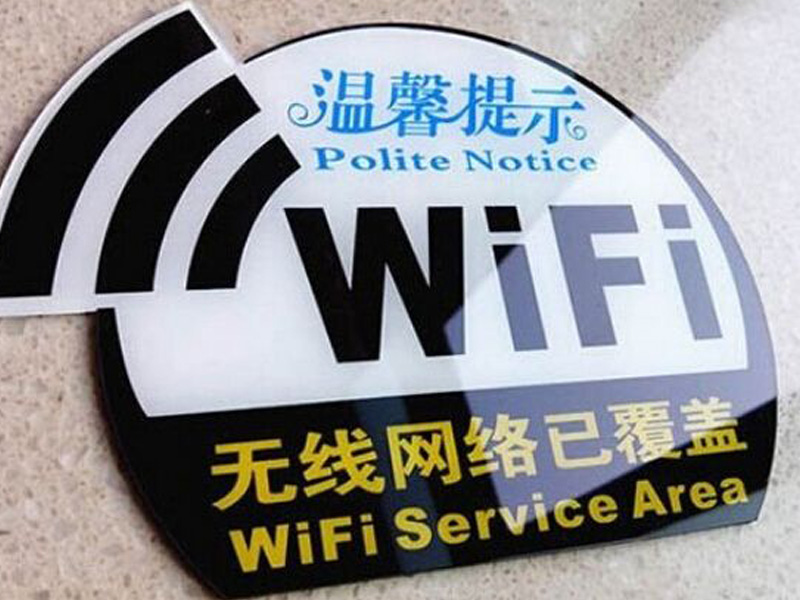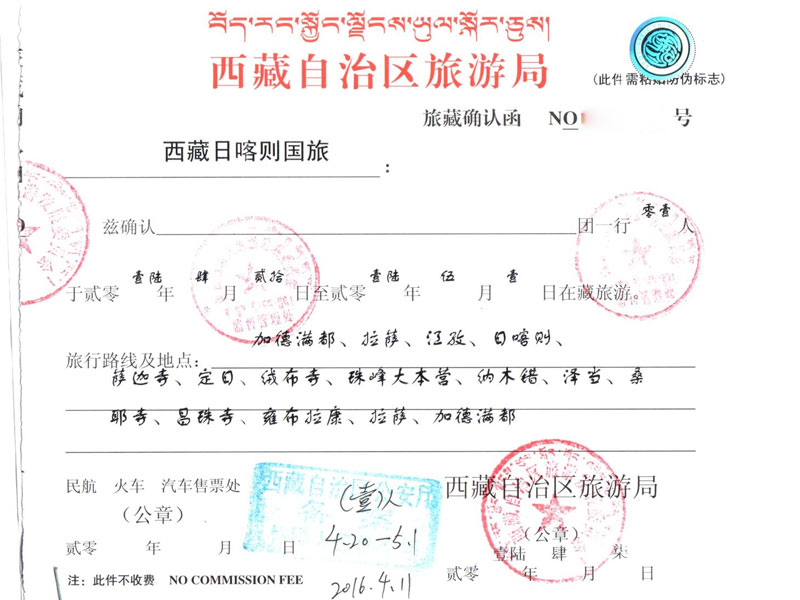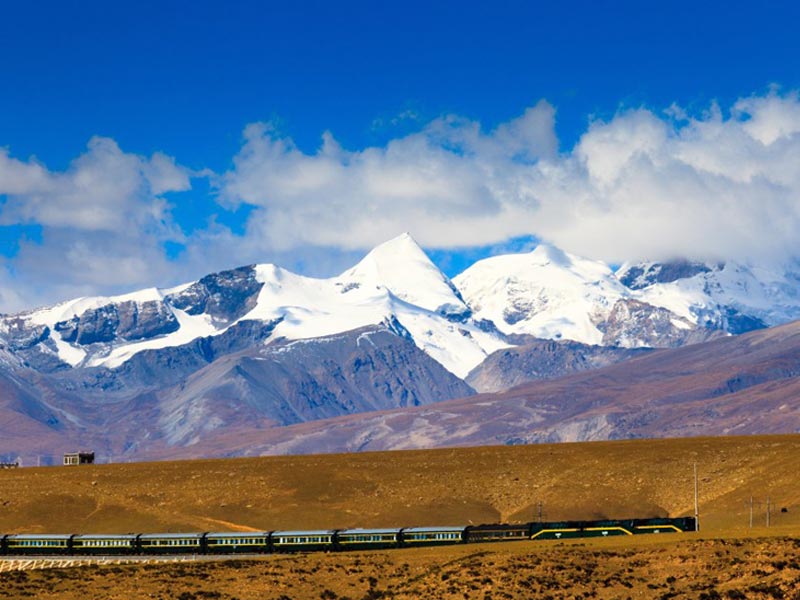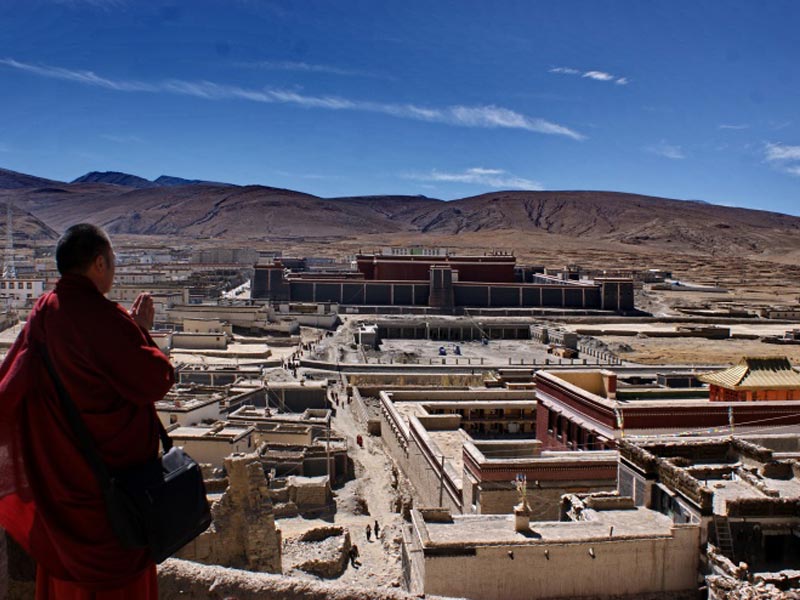Cellphone becomes more and more important to our daily life. When traveling on the high-altitude plateau across the Tibet Autonomous Region, using cellphone is even more important than ever. Modern cellphones are more than just phones. For many people, they are your phone, map, camera, video recorder, notebook, personal organizer, translator, and encyclopedia all rolled into one. It is important for sharing the stunning scenery of the Tibetan plateau with your friends and family around the world, and for getting in touch with your guide and your travel consultant if you need to speak to them. There is a lot of incorrect information about the use of phones and internet in China. So it is very important to know how you can use your phone when traveling in Tibet.
1. Use International Roaming Service
By far the easiest way to use your phone while in Tibet is to have your service provider activate your mobile roaming service, so that you can keep your original SIM card and number while you are traveling. Once activated, you just need to turn on the roaming setting on your phone, and you will be able to connect to local networks that have roaming agreements with international networks to get your service. With roaming and data roaming activated on your phone, you will be able to make calls and send text messages, and even access the internet without changing anything during your Tibet trip.
There are down-sides to this though, and they are rather major. The first is the cost. Roaming charges are extremely expensive, and often cost more than five times as much as the same services back at home. And the inclusive allowances in your service plan do not cover the calls and texts and data, so be prepared for a massive bill when you get back home. The other disadvantage to using roaming is that you will only have the same internet access as everyone else in China, which means you may not be able to use services such as Google, Facebook, and YouTube.
2. Buy a Local SIM Card
The first thing people think of is to buy a local SIM card to use in their unlocked phone during their trip, and this is one of the best options for traveling in Tibet. China has three main cellphone service providers – China Mobile, China Unicom, and China Telecom – all of which have very good signals over most of the Tibetan plateau. You can even get a signal when visiting Everest Base Camp in the far west of Tibet, so you can call your family to share your excitement and real-time scenery with them.
It is best if you buy your SIM card in China before traveling to Tibet, and you can even find SIM cards for sale in airports, train stations, convenience stores, and most hotels in the major tourist hotspots such as Beijing and Chengdu. A basic SIM card costing around 120 Yuan will give you 200 minutes of local calls and enough data usage to cover a couple of weeks of general personal internet and email usage. You can choose the plan you want when you buy the SIM, and you will get the SIM card relevant to your requirements.
You will need to show your passport in order to buy the SIM card, which is not usually a problem, merely a formality. And you should ensure that you stay within your plan allowance, as the cost of exceeding your plan is currently rather expensive in China, at around 60 Yuan per GB. You will also be limited to only have access to the internet that is permitted in China.
3. Use Local WIFI
Just like most hotels around the world now, Tibetan hotels offer free Wi-Fi when you check in, which gives you unlimited access to the internet through the use of the hotel’s login and password. Almost all the hotels providers free WIFI when you are traveling in Lhasa, and majority of the hotels you will stay at in the major towns and cities have free Wi-Fi for guests, and to use it, you simply need to get the login details from the reception desk and sign into the Wi-Fi signal. Your gadget should show the hotel’s Wi-Fi once you arrive. If you have any problems with the login for your device, your guide can help and talk to the hotel if necessary.
4. Rent WIFI Service
For those that are not happy with using a local SIM card nor paying the high roaming charge, you can always rent a Wi-Fi service. One of the popular options for travelers to China is to rent a pocket Wi-Fi unit from the airport when you arrive, use it for your Tibet trip, and hand it back again when you leave. The pocket Wi-Fi unit has a SIM card inserted so that you can connect to the internet through the Wi-Fi device, as if you were logging in to the hotel’s Wi-Fi. The rental is based on a daily rate, which includes the days you collect the device and return it.
The device uses the mobile network for its internet connection, and with the great signals you can get in Tibet now, this is often one of the best ways to connect. However, the disadvantage with this kind of connection is the lack of ability to call or send text messages. The rental service is available at the Lhasa Gonggar International Airport, as well as many airports in mainland China.
5. Get a VPN
Some of social media like Facebook and Twitter are not accessible in China, Even if you are roaming, you will still not have access. However, by using a Virtual Private Network (VPN) app, you can bypass the Great Firewall and gain access to your favorite social media websites. The VPN uses an international server base to access the internet in China, as the firewall does not block the VPNs, only the direct access to the social media websites. So if you want to use these sites while you are in Tibet, get a good VPN before you leave home.
One thing to remember, though, is that while it is not illegal to use a VPN in China, the VPN you use must be a legal and registered one, and not one that offers “hacked” ways around the firewalls. There are a larger number of VPNs that you can sign up for, and the cost is not high, so it is worth it if you cannot live without your internet social life for a week. Just remember to do your research and make sure that you do not use one of the hacks.
6. Buy or Rent an Unlocked Cellphone
Not all phones will actually work in China. Depending on your phone’s status, you may need to buy or rent a cellphone while you travel through Tibet. The most common problem people have when traveling in Tibet is not being able to use the new local SIM cards in their phones. This is normally because the phones they have are locked to their own network, and cannot be used on a different service provider. Phones that are network locked are normally post-paid phones on a contract with a specific service provider in your home or resident country.
In order to make sure you can use a SIM card from China while you are in Tibet, you should call your service provider to have your phone unlocked before you travel. This can take several weeks to process, so it is best to check it as early as possible. If you are not sure if your phone is locked to your network, the general rule is that post-paid phones are, and pre-paid phones are not. You can call your provider to check your phone’s status.
However, if you are still within your service contract period, your provider may not allow the unlocking of the phone until the service contract period ends. If this is the case, then you can buy cheap phones almost anywhere that are unlocked which you can use for your trip. Alternatively, there are some companies that rent cellphones at the airports in China, and you can rent one for your trip to Tibet. The main advantage of renting is the ease of use, but it can be expensive. And with cellphones being so cheap now, you can buy a cheap phone for the SIM card for a lot less than a rental unit.
Conclusion
Traveling to Tibet is an epic adventure, and you do not want to miss out on making sure you can save all your photos to the cloud or upload them to your own website or social media accounts. For cellphone and internet access, you can activate roaming service, use a local SIM card, rent a WIFI unit, and get a registered VPN, so that your internet can go as smoothly as the rest of your trip to Tibet.
.jpg)














0 Comment ON "How to Use Your Cellphone and Internet When Traveling in Tibet"